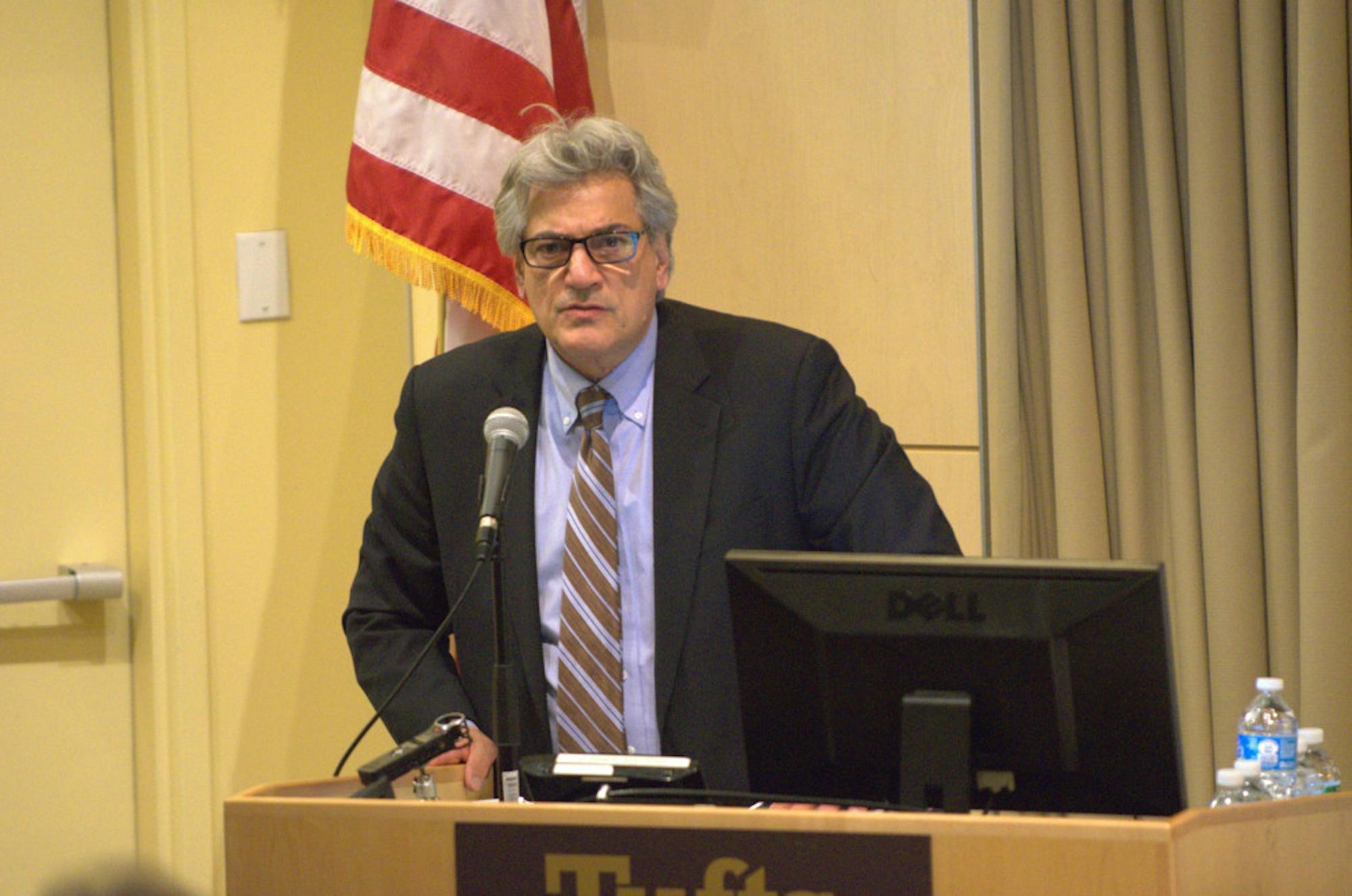This year’s Education for Public Inquiry and International Citizenship (EPIIC) colloquium will explore Russia in the 21st century.
The course is run through the Institute for Global Leadership (IGL) and takes place over two semester. It will span a wide range of topics, including the society, culture, national identity, economic structure, political system and foreign policy of Russia, in addition to the country's relationship with the United States, according to the the program's website.
“This semester is very intensive in terms of reading and papers and exams, so the students are reading about 500 pages a week and really learning the topic,” IGL Associate Director Heather Barry said.
IGL Founding Director Sherman Teichman explained that this year's topic was chosen three years ago and is supported by a grant from the Carnegie Corporation of New York, which helped to support last year’s colloquium as well.
Teichman said that the program is now in its 29th year, and has previously focused on topics such as the future of the Middle East and Africa as well as global health, security and conflict in the 21st century.
“We deal in what we call ‘conundrum issues,’” he added.
The students who participate in the colloquium will be reading a variety of books and handouts, such as “Russia: A 1000-year Chronicle of the Wild East” by Martin Sixsmith and “The Last Empire: The Final Days of the Soviet Union” by Serhii Plokhy, Teichman said.
According to the EPIIC website, the class also features a variety of guest lecturers and advisers, such as Carol Saivetz, a research associate at Harvard University’s Davis Center for Russian and Eurasian Studies, James Hershberg (G ’89), a professor of history and international affairs at George Washington University, and Mark Kramer, director of the Cold War Studies Program at Harvard University.
“The first thing is to have a very solid foundation course,” Teichman said. “Students will meet close to 30 experts. Many of them are alumni.”
According to Barry and Teichman, the program emphasizes putting learning to use. Students will get involved in research projects, present a film and lecture series and plan and organize the Norris and Margery Bendetson EPIIC International Symposium, which is in its 30th year.
The symposium is a public forum designed and managed by EPIIC students, and it features a variety of advisers and panelists. Students in the program will break into committees to organize the panels and speakers for the symposium. According to Teichman, the symposium will host students from Russia, Ukraine, Brazil, Israel and Iraq, as well as midshipmen and cadets from military academies.
“The first objective is to have a very solid and significant class, followed by a range of different activities, all preparatory for a five- to six-day gathering at the end of February and beginning of March,” Teichman said.
Many EPIIC alumni are involved with the program. Barry said that many return as lecturers, symposium panelists or as part of the special projects run by EPIIC throughout the year.
“We’re proudly in touch with 80 to 85 percent of our alumni from over 29 years,” she said.
Twenty-two students are a part of this year's EPIIC colloquium. According to Barry, all prospective students of this year's program were interviewed so they would have an opportunity to ask questions and learn more about the program in a one-on-one setting. The colloquium meets for five hours a week.
According to Teichman, this year’s EPIIC students recently returned from an "Outward Bound" weekend immersion program in Pinkham Notch, N.H., where Joshua Rubenstein, an associate at Harvard’s Davis Center, delivered a guest lecture. The weekend combined lectures and team building activities and is designed to help bring the class together, Barry said.
“It’s a way to build the class as a team and a community, because they’re going to be doing so much work together and they’re going to have to rely on each other,” Barry said.
Shelby Luce, a member of the 2014-2015 EPIIC class, said she was excited to have the opportunity to be a part of the program. Highlighting the small group size and relevant topic, she noted that her classmates were part of a dedicated and involved community.
“You get out what you put in,” Luce, a sophomore, said.
Grigory Khakimov, another member of this year’s EPIIC class, said that he enjoys being able to speak directly with the authors of books and articles that EPIIC students read, as many of these writers come to the colloquium as lecturers. A native of Russia, Khakimov also said he was interested in seeing how professors in the United States interpret the political sphere in Russia.
“It’s very interesting to see this interpretation of the facts and the historical details,” Khakimov, a junior, said. “I can analyze different information from Russian newspapers and mass media and compare this information with articles and books which we read in EPIIC.”
This year, the EPIIC Symposium will run from Feb. 26 to March 1, according to the program's website.
“It’s a fun community,” Teichman said. “The rigor and enjoyment of intellectual life can be tremendous[ly] fun. It’s an intellectual team.”
EPIIC colloquium to focus on Russia in the 21st century

Sherman Teichman, the IGL Director, introduces last year's EPIIC Symposium.





